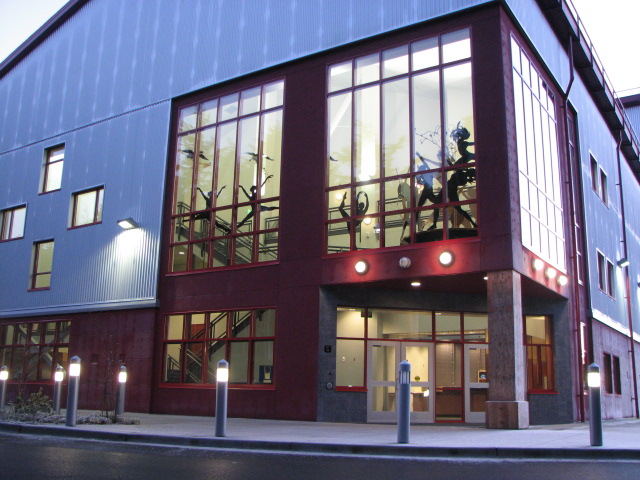
The Sitka Performing Arts Center was part of a school bond package in 2003, paid for by a seasonal sales tax increase. The state agreed to reimburse Sitka for 60-percent of the bond debt. If the state pulls out of the deal — and other bonded school projects in town — municipal finance director Jay Sweeney estimates that it would cost Sitka $1 million a year. As he put it, “a budget bomb.”
Without hard numbers from the legislature, the Sitka Assembly is holding off making any further funding cuts to schools.
The assembly and school board met in a special meeting Thursday night (3-2-17) to consider Sitka’s “local contribution” the mostly state-funded school district.
The Sitka School Board will meet next 7 p.m. Monday March 6 at the ANB Founders Hall. Their next budget work session will be at 6 PM March 28 in the District Office.
With several bills active in the legislature — all of which could substantially affect school funding — assembly members didn’t see any reason to throw anyone into a panic.
Mayor Matt Hunter assured the district that the assembly was willing to help.
“It’s probably a good idea to keep planning for the same city contribution, and do your best. And we’ll deal with whatever comes from the state, when that happens. If it does.”
The city contribution will be just shy of $6 million ($5,944,533) for instruction.
This is down from last year by more than $200,000 — but then so is the overall school district budget.
The school board early in the budget process received fair warning from the city that local spending would be down, as city hall struggles with its own budget deficit.
Board member Eric Van Cise was taking pains to remind Sitkans that money would be tight next year.
“A lot of what I’m doing is gently-but-persistently educating my constituents that there’s not some unlimited amount of money there. And there’s going to be some difficulty and some heartburn because we have a pretty good percentage of people in town here who are used to having wants, and we’re getting down to needs with things.”
School board member Jennifer McNichol said that she appreciated the cooperation of the assembly in trying to do the best for the school district. Appointed in the fall of 2015, and elected to a full term last fall, this is only McNichol’s second time through the budget — and it’s not getting more relaxing.
“I personally experienced a lot more anxiety than I ever have on the school board level, after the last update on the budget with these additional reasons for increasing our deficit, and also the legislative piece sinking in more and more.”
The “legislative piece” is a couple of proposals in the legislature with enormous consequences for local school districts. The first would reduce the so-called BSA, or Base Student Allocation, by 5-percent. This idea is emerging in the Senate Finance Committee, and it’s tied to an overall state budget cut.
It would mean a hit of over $800,000 to the Sitka School District.
The other potentially costly legislation comes from the House Finance Committee, and it’s unsettling to Sitka’s municipal finance director Jay Sweeney.
“There’s a giant budget bomb waiting to happen. And the school board touched on this — it’s different from the BSA. When they talked about school bond debt reimbursement. As it stands now, if the state were to continue with 50-percent school bond debt reimbursement, we would exhaust the balance in our 1-percent sales tax fund in fiscal year ‘18. If it were to continue into fiscal year ‘19, again at 50-percent reimbursement, we’re looking at an extra $500,000 bill that’s laid on the General Fund. If they eliminate it completely, we’re looking at a $1 million bill.”
Sitka has a long relationship with bond debt. We’ve bonded to remodel Sitka High and Baranof Elementary; and we’ve replaced all the school roofs and built the Performing Arts Center. For these latter two projects, the state agreed to reimburse Sitka 70- and 60-percent of the bond debt respectively. Sitka has paid its portion through a seasonal sales tax increase of 1-percent — a deal meant to last through 2024.
If the state legislature drops out, Sitka will be stuck with the full bill. Sweeney cautioned that some of the burden could be passed to the district.
“And when we have a large problem like that, inevitably we’ll ask the others who make up the municipality to help share the pain.”
And Sweeney added: “It’s coming.”































